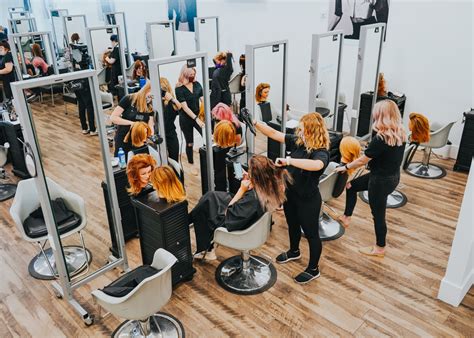Your Guide to Beauty School: Age Limits & Application Essentials
Dreaming of a career transforming lives, one stylish haircut or flawless makeup application at a time? Beauty school might be your perfect path. But before you dive into perfecting your updo or mastering a smoky eye, let's address some key questions: What are the age limits for beauty school, and what essentials do you need for a successful application? This comprehensive guide will equip you with the knowledge you need to confidently embark on your beauty career journey.
Are There Age Limits for Beauty School?
The short answer is: no, there isn't a universal age limit for beauty school. Unlike some professions with strict age requirements, most beauty schools welcome students of all ages. However, there are a few nuances to consider:
- Individual School Policies: While there's no blanket age restriction, individual schools may have their own internal policies. Some might prefer students within a certain age range for logistical reasons related to classroom dynamics or specific program requirements. It's crucial to check directly with the schools you're interested in.
- Financial Aid and Scholarships: Age might indirectly affect your eligibility for financial aid or scholarships. These programs often have specific age criteria or target particular demographics. Explore these options early to determine your eligibility.
- Physical Demands: Some aspects of beauty work, such as standing for extended periods, can be physically demanding. While age doesn't automatically disqualify someone, it's essential to honestly assess your physical capabilities and discuss any concerns with the school's administration.
What are the Typical Application Requirements for Beauty School?
The application process varies between schools, but some common requirements include:
- High School Diploma or GED: This is almost universally required. Your academic record demonstrates a foundation for learning and commitment to education.
- Application Form: Most schools have a formal application form to collect your personal information, educational history, and other relevant details.
- Entrance Exam: Some schools might administer an entrance exam to assess your aptitude and readiness for the program. This could involve basic math, reading comprehension, or even a practical skills assessment.
- Interview: An interview is a common component, giving the admissions committee a chance to assess your personality, motivation, and suitability for the program. Prepare examples showcasing your passion for beauty and your commitment to learning.
- Background Check: Some schools conduct background checks to ensure the safety and well-being of their students and staff.
- Fees: Application fees are typical. Check the school's website or contact them directly for current fee details.
What if I'm a Mature Student?
If you're considering beauty school later in life, embrace it! Mature students often bring valuable life experiences and a strong work ethic to the classroom. Here are some points to consider:
- Highlight Your Experience: During interviews, emphasize your transferable skills and life experiences that can contribute to your success in beauty school and your future career.
- Time Management: Balance your studies with other responsibilities. Create a realistic study schedule and manage your time effectively.
- Networking: Connect with younger classmates – their energy and perspectives can be invaluable, and you can offer valuable mentorship in return.
How to Choose the Right Beauty School?
Choosing the right beauty school is a significant decision. Consider these factors:
- Accreditation: Ensure the school is accredited by a recognized body. This confirms the quality of the education you'll receive and increases your chances of employment after graduation.
- Curriculum: Review the curriculum carefully to see if it aligns with your career goals. Some schools specialize in specific areas like hairstyling, makeup artistry, or esthetics.
- Faculty: Look into the qualifications and experience of the instructors. A skilled and passionate faculty can make a significant difference in your learning experience.
- Location and Facilities: Consider the school's location and the availability of modern equipment and facilities.
- Cost and Financial Aid: Compare the costs of different schools and investigate available financial aid and scholarship options.
What skills are needed to succeed in beauty school?
Success in beauty school goes beyond just talent; it requires dedication and several key skills:
- Artistic Ability: A natural eye for aesthetics and a knack for creativity will enhance your learning.
- Manual Dexterity: Precision and fine motor skills are critical for detailed work like applying makeup or cutting hair.
- Communication Skills: Communicating effectively with clients is vital in the beauty industry.
- Time Management: Juggling multiple tasks and managing your time efficiently are essential.
- Hygiene and Sanitation: Maintaining a clean and sanitary work environment is paramount for the health and safety of clients.
By carefully considering these points and thoroughly researching schools, you can confidently embark on your journey to a fulfilling career in the beauty industry, regardless of your age. Remember, passion and dedication are your most valuable assets. Good luck!

